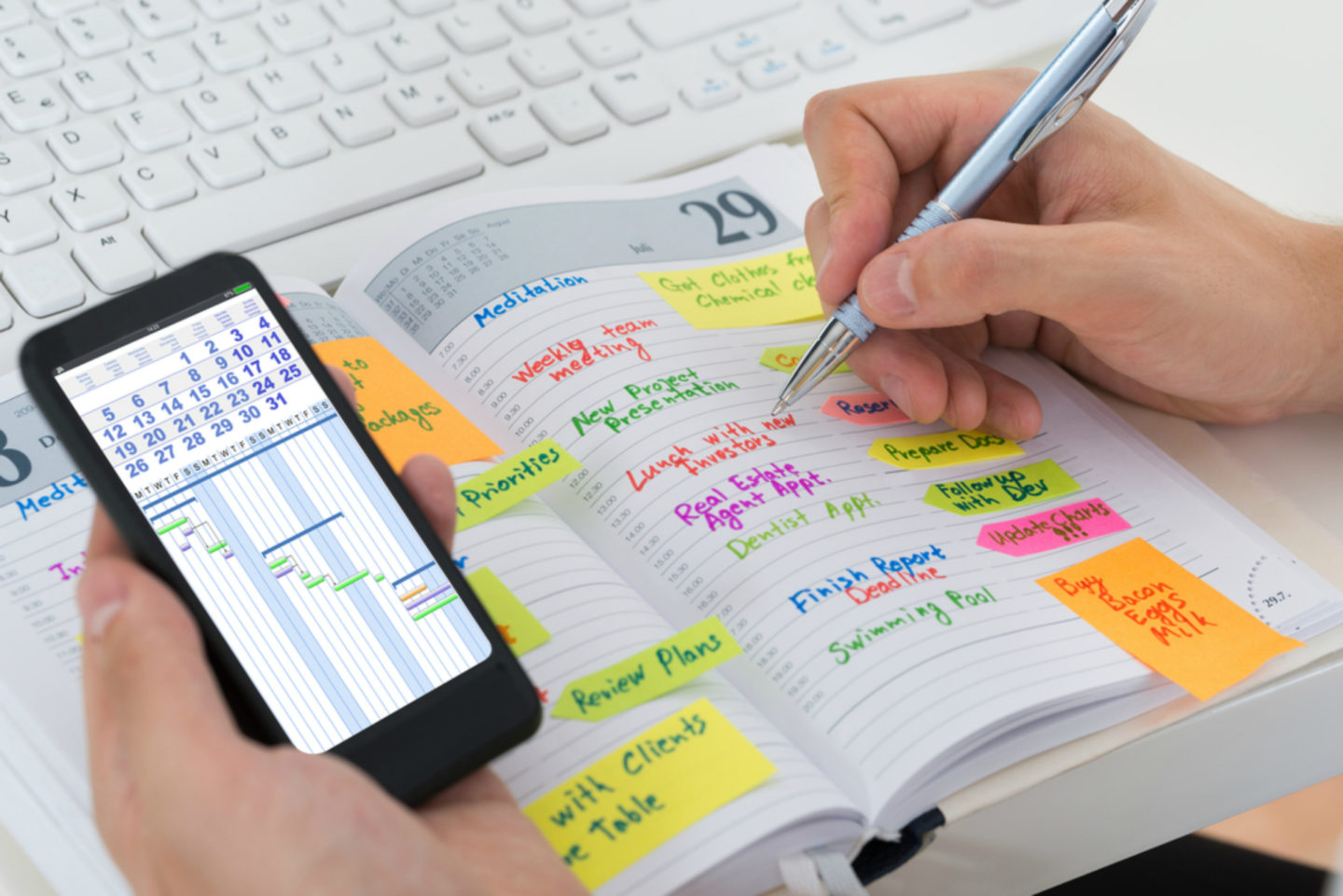A paper-style diary was the organisational tool of choice for years in the workplace, but technological advancements mean more people now turn to their laptop or computer for note taking. Storing your schedule digitally may be a more efficient method, but does that necessarily make it a better way of getting organised?
A 2014 study by the Association of Psychological Science found that when students took notes on paper, it boosted recalling the information later, compared to those who took notes via a computer. As handwritten text contains your own words and phrasing, notes on paper can serve as a better memory cue. They allow the brain to recreate emotions and thought processes, as well as content.
According to Associate Professor Anne Mangen of the University of Stavanger in Norway, different parts of the brain are used when writing by hand. By combining our fine motor skills with the physical sensation of touching a pencil and paper, our brains receive more useful feedback – significantly different to touching a keyboard.
We’ve taken a look at why it could be more beneficial to jot down your appointments and deadlines in a physical diary, and the key areas where paper triumphs over digital.
Get personal
By creating your own memory cues and reminder prompts for your notes and appointments, you can devise a system of handwritten notes unique to you. You can also form good habits when writing by hand, including jotting down a to-do list at the start of the day.
It’s private
A diary book is personal to you, with information included that only you need to know. There still stands that unwritten rule that it’s rude to snoop in somebody’s diary, so you can be confident it’s private.
Electronic diaries, on the other hand, are usually shared, which of course has its benefits when it comes to arranging meetings, but can nonetheless feel intrusive.
No room for error
We’ve all been there: put our faith in technology, only for important work and calendar dates to be mysteriously deleted. With a paper diary or personal organiser, you can record everything without fear of it getting wiped. In that respect, the humble pen and paper could still be said to be more reliable than its digital counterpart.
Scoping out ideas
Writing things down as they occur to you is good way to plan and strategise. Using a notebook and pen also gives you the chance to doodle. While it may look messy, research by Plymouth University found that doodling can aid memory recall.
You may also find that creativity can spark off the page through sketches and lists, and you may even trigger your subconscious into kicking out an idea or two by experimenting on the page.
Visual pleasure
Those who keep paper diaries will agree that there’s something quite optimistic and exciting about getting a brand new diary at the start of the year – its clean, crisp pages ready to be filled with dates, ideas and important notes. And those key thoughts and feelings remain documented as a permanent point of reference.
Whether you keep a digital or paper diary is all down to personal preference, of course. There are advantages to both methods, and whether you prefer planning out your weeks on paper or in the cloud, different routines will work for different people.








